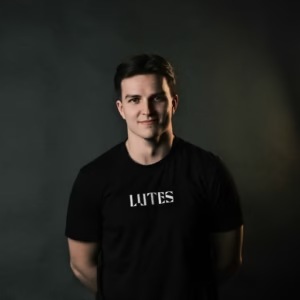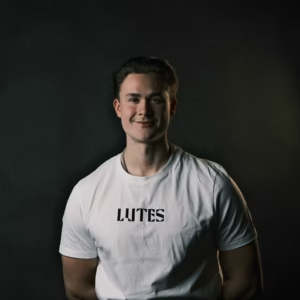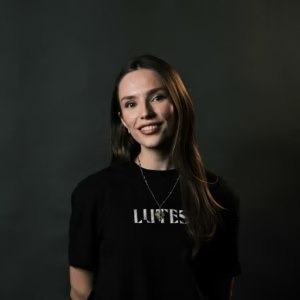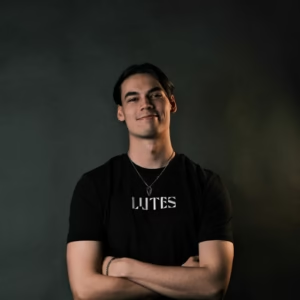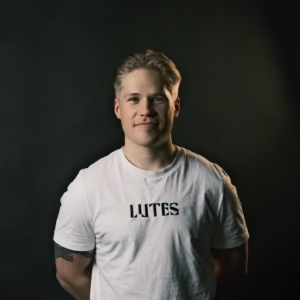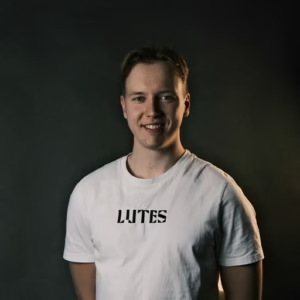Community of more than 15+ study fields and 200 active members is what makes us
LUTES is run by students
LUTES Board of 2025
Visit us at Parvi
LUT University
Yliopistonkatu 34, 53850 Lappeenranta, Finland
LUT University main campus, above street cafe.
History of LUTES
2011
The founding year of LUTES, driven by a passion for entrepreneurship and changing the world. A group of about IO people wanted to join the startup scene and the business world, and to transform it. The world was in the grip of chaos (the euro crisis, the rise and fall of Nokia), and they wanted to support entrepreneurs and work together. The mindset they aimed to promote was one of action—moving from thinking to doing. In 2011, LUTES took bold steps forward, and thus the story of LUTES began, with the next year’s board taking the reins. The picture shows the first location of LUTES, where it all started.
2012
The second year of LUTES began with the same idea as the founding year. Entrepreneurship was not considered a realistic career option, and LUTES wanted to change that perception. The goal was to grow the LUTES community and connect with like-minded individuals. At that time, the location was also seen as an advantage, and efforts were made to leverage it. As a non-profit organization, LUTES gained some visibility and funding, which was then used to organize events for people with the right mindset. The picture shows an event related to game development, as the gaming industry in Finland was on the rise in 2012.
2013
LUTES used the last two years as a springboard, leading to an expansion of its activities. The main language of the startup ecosystem is English, and LUTES adopted this as well. Today, English is the primary language of LUTES. In 2013, LUTES operated much like a startup, experimenting with various initiatives to see what worked in order to attract the right kind of people to entrepreneurship, and lessons on entrepreneurship began to be shared within the community and LUTES also gained a stronger foothold in the school environment. The office was relocated to the University Building. LUTES also increased its collaboration with other ES organizations and participated in its first Slush which is now known as the largest startup event in Europe.
2014
Growth is something LUTES has achieved everyyear, and this year was no different. English officially became the main language, and the number of active members in the LUTES community more than doubled, allowing foiactivities to be executed on a larger scale. A record number of 30 events were held. Additionally, the first dedicated startup accelerator was established, where student teams built startups. At the time, there was no startup ecosystem in Lappeenranta, so in 2014, the goal was set to create one. LUTES secured funding for the summer program and other initiatives, and eve organized an excursion to St. Petersburg, aimed at inspiring students.
2015
In 2015, LUTES faced some challenges regarding its office space and had to relocate to LUT University’s premises due to renovations at the University building. However, the use of these facilities was not free and had to be arranged separately. Despite this, LUTES’s activities became more international, and more events were organized in collaboration with other ES organizations. LUTES also played a hosting role in well-known Startup Shiri. Additionally, the mindset of expanding activities remained strong, leading to an even bigger event based on the previous year’s Summer launch pad, with closer collaboration with local communities and the city. The first company excursion to Estonia was also made possible, providing valuable insights for LUTES’s operation.
2016
By this point, LUTES’s size and growth had become quite significant. Membership had grown to over 100 people, and the focus shifted toward further enhancing LUTES’s reputation. Securing speakers had become much easier compared to previous years, as LUTES had already made its mark, at least within the business world. Was this progress reflected in the event and their quality. LUTES began to gather a budget, which allowed for a 10-Week startup incubator to be organized over the summer. This incubator hosted 15 teams, two of which successfully launched companies that went on to raise substantial amounts of funding. LUTES’s activities could now be considered significant
in collaboration with other entities in Lappeenranta.
2017
Up until this point, LUTES had primarily been a community for entrepreneurs aged 30 and over. However, in 2017, the new chairman infused the community with youthful energy. The brand underwent a complete overhaul. The old purple branding was replaced, and lessons were learned from previous ways of operating. The goal was to embrace a more modern startup culture and explore the opportunities it could offer, even to first-year students. The office location was moved next to the kiosk at LUT University, which supported other reforms as well. The approach was made more accessible, but the core LUTES mindset remained unchanged. The ambition to do bigger and greater things persisted, and this year, the rebranding ultimately brought more active members in to the community.
2018
LUTES continued with the same mindset of growing the community even larger. This was evident in 2018, with the number of participants reaching an all-time high of 300. There was also a strong focus on enhancing collaboration with Aaltoes, Slush, and other communities. LUTES began to leave a more lasting impact. The funding also doubled, indicating that LUTES was making a significant influence both in the startup ecosystem and the world of entrepreneurship. A formal member registry was created, and all it took to become a member was an entrepreneurial spirit. The picture shows the LUTES board at the time in Singapore for Slush.
2019
The rebranding and increased funding over the previous two years propelled LUTES further in 2019, bringing it more into the spotlight. Although there weren’t many entrepreneurs among the members, the number of participants in events and programs continued to grow significantly. LUTES also received more support for its activities and organized the 7-week Forward program. This was the first time Forward was held, and it has since become a staple of LUTES, serving as its entrepreneurship accelerator. To further support entrepreneurship, LUTES maintained a program called Day One, which functioned as a mentorship program for those interested in starting their own ventures. LUTES’s strengths in fostering entrepreneurial spirit among students grew even stronger, as reflected in the approximately 30 events held by the end of the year. The picture shows the year 2019.
2020
The year 2020 brought the challenges of the COVID-19 pandemic, which also impacted LUTES’s activities. The community became more strategic in how it organized events, given that in-person gatherings were not possible. LUTES held the Takeoff speaker event virtually, which attracted as many as 200 participants. Notable speakers included Peter Vesterbacka, known for his role in developing the now world-famous Angry Birds mobile game. The vision for the year was to launch seven companies from within the LUTES community, and although this goal was not fully achieved, LUTES became much more strategic in its operations. Collaboration with the university and other stakeholders was also well-established. During this time, the current LUTES office, Parvi, was constructed.
2021
With the establishment of Parvi, LUTES continued to grow, and it became a true hub for startup activity. This startup buzz was exactly what LUTES needed to foster the creation of more startups. The membership primarily consisted of industrial engineering and business students, but there was a relative lack of technical students. However, in 2021, this began to change, and the number of startups increased. LUTES’s growth was also directly linked to funding, which they began to pursue on a larger scale. The first LUTES breakfasts were held this year, which has since become a tradition in the community. The picture also highlights the Ambitious Africa project, where entrepreneurship was brought to women in Africa.
2022
In 2022, the membership registry began to grow rapidly with the establishment of Parvi, contributing to a stable operational environment for LUTES. The organization responded to this growth as best as possible, continuing its activities at Parvi. Additional efforts were also made to enhance the brand, aiming to increase LUTES’s visibility among students and stakeholders. The entrepreneurship accelerator, Forward, was revamped into an intensive week instead of the previous 7-week program. This change led to the creation of around 10 startups throughout the year, which were then supported and encouraged to grow and succeed. Despite the increase in membership, LUTES’s activities became even more supportive and encouraging. By the end of the year, the membership registry had reached approximately 450 people, a record number. Additionally, a branch was established in Lahti due to the university’s connection there.
2023
In 2023, the effects of the pandemic were a distant memory, and LUTES had fully settled into Parvi. The membership had grown to nearly 600, with half of the members being international. This made it easy to hold events in English, accessible to everyone. One of the biggest projects of the year was LUTES Park at the start of the school year, which saw a record number of around 1,000 visitors. The autumn Forward program continued to serve as an entrepreneurship accelerator, just as it had in previous years. LUTES was in a stable position, allowing for larger initiatives. The Ambitious Africa project was organized again, to much satisfaction, and LUTES also arranged an excursion to London, which included a visit to the University of Cambridge. The purpose was to enrich Finland’s startup ecosystem with insights from larger ecosystems. In total, LUTES organized over 70 events in 2023, with nearly 30 active members involved. The operations had become well-established, and the events were well-attended.
Yearbook 2024
Annual recap of highlights from the LUTES community and events.

